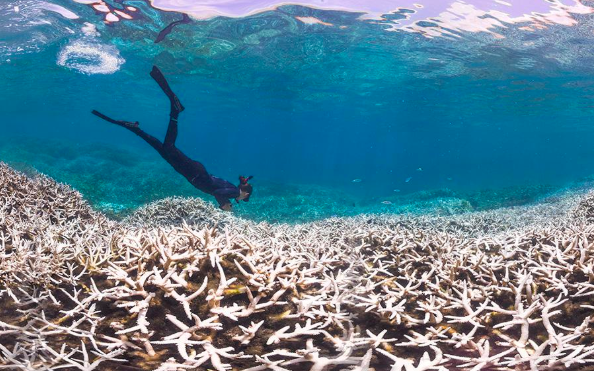
by Alexandra Patel and Monica Medina
On Wednesday, the House of Representatives passed The Ocean Acidification Innovation Act, landmark legislation to enable institutions to compete for $50 million annually in federally funded prize money for research dedicated to ocean acidification. The House also passed the Coastal Communities Ocean Acidification Act, which directs the National Oceanic and Atmospheric Administration to work with state and local experts to assess the likely impacts of acidification on coastal communities, prepare a public report on which communities are most exposed to the problem, and support state efforts to assess their own vulnerabilities. Both bills had overwhelming bi-partisan support – but whether the Senate will take them up remains to be seen.
Why This Matters: As the world’s carbon “sink”, the ocean absorbs almost 93 percent of all the excess carbon emitted, and stores it in algae, vegetation, and coral under the sea. Over the past century, as the pace and amount of carbon dioxide (or CO2) emitted grew (CO2 parts per million is now at the unprecedented level of more than 400 parts per million and rising), the amount of carbon sunk into the seas has also increased and led to unprecedented levels of ocean acidification — an approximate 30 percent increase in ocean acidity since the Industrial Revolution began. As many Members of Congress have said, the ocean has been “abused as a carbon sink” for too long. At a time when America’s political parties are estranged and collaboration seems almost impossible, the impacts of climate change on oceans proved too glaring to ignore and thus offered a rare opportunity for bipartisan legislation.
Increasing ocean acidification has wide-reaching consequences for marine life and habitats, as well as on the communities and industries that rely on them. Ocean acidification will cost the world economy more than $1 trillion annually by 2100, according to a U.N. report released in 2014.
- Calcifying marine species, such as oysters, clams, mussels, and shellfish, are especially vulnerable to ocean acidification, as it hinders their ability to form their shell and skeletal structures.
- A recent study on the Bermuda Brain Corals discovered that there has been a 25 percent decline in calcification rates over the past 50 years due to ocean acidification.
- This has threatened the fishing industry on the Pacific Coast, which creates 15,900 direct jobs and generates $9.4 billion in revenue.
- Marine habitats, such as coral reefs, serve as nursery grounds for newly laid eggs and younger animals to hunt and grow with relative protection, and are a big part in sustaining fishing stocks, but are also severely impacted by ocean acidification and thus pose a large threat to the global fishing industry.
- The fall in fisheries is estimated to cause a loss of 100 billion USD globally and threaten the livelihoods of the 4.3 billion people who depend on fish for 15 percent of the animal protein intake.
June 6, 2019 » bipartisan, Congress, House of Representatives, ocean acidification

